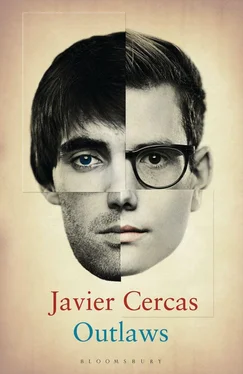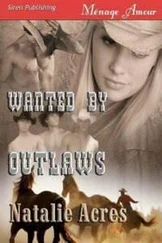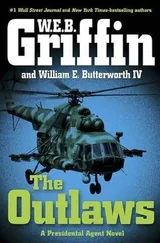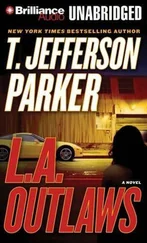‘I was a little humiliated that Tere guessed what I was thinking; but only a little: by then the opinion Tere might have of me had begun to stop mattering. While she kept talking I glimpsed over her shoulder, across the river and into the trees, no more than three hundred metres away, the apartment blocks on Caterina Albert, and at that moment I thought — it was the first time I thought this — that my house and the prefabs were at once very close and very far apart, and only then did I feel that it was really true that I wasn’t like them. Suddenly all that had happened over the past months seemed unreal, and it felt comforting to know that I belonged on the other side of the river and that the waters of the blue border had now returned to their course; I suddenly understood that I had cleared up my feelings about Tere and that Tere had just been a strange and fleeting summer fling.
Tere kept talking while I had started to look for a way to get out of there. She was talking about Zarco; she was saying that, whatever sentence was passed on him, he wouldn’t spend much time in prison. He’ll escape as soon as he can, she said. And that’ll be soon. I nodded, but made no comment. Two little boys on bikes followed by a dog went by a couple of metres from where we were, splashing mud on my shoes. Just then the hut door opened and the sounds of a fake gunfight and a real baby crying came from inside at the same time as the head of the girl I’d seen breastfeeding the baby peeked out and told Tere she was needed. I’ll be right there, answered Tere, and the door closed again. Tere touched the beauty spot beside her nose; instead of going in she asked: Have you been back to La Font? No, I answered. Have you? Me neither, she answered. But if you want we could meet there tomorrow afternoon. I’m seeing Lina. I thought for a moment and said: OK. Tere smiled for the first time that day. Then she said goodbye and went into her house.
‘The next day I didn’t go to La Font and I didn’t see Tere again until the middle of December. Over those three months of autumn I completely changed my life; or rather: in a certain sense I went back to my former life. The life I’d had before Tere, before Zarco, before Batista and before everything. Although, as I say, I only went back to it in a certain sense, because the person going back was no longer the same one. I told you when we started talking about Zarco: at the age of sixteen all borders are porous, or at least they were back then; and it’s true that the border formed by the Ter and the Onyar rivers was as porous as that of the Liang Shan Po, or at least it was for me: three months before I had gone from being a middle-class charnego to being a quinqui from one day to the next, and three months later I stopped being a quinqui overnight and went back to being a middle-class charnego . Things were as simple as that. And as quick. The disbanding of Zarco’s gang made it all easier, of course: most of them were in prison or not around any more, the ones who were still on the outside didn’t come looking for me and I didn’t go looking for them. That radical change in my relationship with my family also made it easier. I told you already that after those days in Colera my relationship with them became really good again and that, although my father knew everything that had happened that summer, he never asked me any more questions; my mother and my sister didn’t either, so in my family it was as if what had happened that summer hadn’t really happened.
‘But what made my return to this side of the water margin irreversible was going back to school, or the way I went back to school. Term started two days after my visit to the prefabs. The first day of school started with a clear sunny morning, the sky a perfect blue and the football pitch gleaming as if it had just been watered. In the octagonal courtyard outside the entrance to our wing, while waiting for the doors to open and classes to start, I greeted some of my old Caterina Albert Street friends from a distance, but not Batista, who didn’t show up first thing. In spite of that, I didn’t even have a chance to consider the possibility that he might have changed schools because the teacher read out his name from the list when he took attendance.
‘Batista came in halfway through the morning, though we didn’t exchange a word until classes finished at lunchtime. I was on my way out by the back door, where the parking lot was, when, as I rounded the corner of the school cafeteria, I saw him a few metres away from me, leaning on the gas tank of his Lobito, which in turn was leaning against the wall; in front of him, talking to him, were all the guys: Matías, the Boix brothers, Intxausti, Ruiz, Canales, and maybe one or two others. As soon as I appeared they fell quiet and I knew it was a chance encounter; also, that I had no alternative: unless I wanted to avoid them ostentatiously or turn around and go back inside and out the front door of the school, I had no choice but to walk past Batista and the rest of them. Plucking up my courage I kept walking but before I walked by Batista he stood up from the Lobito and blocked my way by holding out his arm. I stopped. Long time no see, catalanufo , said Batista. Where’ve you been? I didn’t answer. In light of the silence, Batista nodded at my bandaged arm. What’s that? he asked. A mosquito bite? I heard some nervous or stifled laughter; I didn’t know who was laughing and didn’t bother looking around to find out. Then, without having planned it, I answered in Catalan. No, I said. It was a bullet. Batista laughed loudly. You’re so funny, Dumbo! he said. After a silence he added: Hey, don’t tell me you’re only going to speak in Catalan now? At that moment I turned to him, and got a surprise as I looked him in the eye. With an unexpected sensation of victory — feeling almost like Rocky Balboa on my pinball machine, muscular and triumphant, wearing shorts with the American flag printed on them and raising my arms to the cheering stadium while a defeated boxer lies on the canvas in the ring — I realized that I didn’t care if Batista called me Dumbo or called me a catalanufo . I realized that Batista was just a half-assed bully, a harmless loudmouth, a weak, spoilt brat, and I was astonished at myself for ever having been scared of him. Even more astonishing, I realized that I no longer felt any need to get revenge on him, because I didn’t even hate him any more, and that’s the best revenge.
‘Batista held my gaze for a second, during which I was sure that he knew what I’d realized, what I was feeling. His laughter froze in his mouth and, as if in search of an explanation, he looked at Matías and the others; I don’t know what he found, but he turned back to me and slowly, without taking his eyes off me — eyes in which there was no longer the slightest trace of sarcasm or contempt, only bafflement — lowered his arm. As I carried on towards the exit I said in Catalan, loud enough so that everyone would hear: Well, I’m not speaking Spanish to you, Batista. That day I had lunch with my father, my mother and my sister. After we’d finished, my father took me aside and asked how the first day of term had gone; he’d already asked during the meal, and I repeated my reply: I told him that everything had gone well; then I asked him if he’d already talked to Batista’s father. Not yet, said my father. I was thinking I’d do it tomorrow. No, don’t, I said. You don’t need to any more. My father stared at me. It’s all sorted out, I explained. Are you sure? my father asked. Completely, I answered.
‘I wasn’t so sure, of course, but it turned out I wasn’t wrong and our encounter in the school parking lot must have convinced Batista of the fact that over the summer I had changed from a serpent into a dragon. So Batista’s first defeat was his last, and from the second day of term he seemed like a different person. He didn’t bother me again, he avoided me systematically, barely spoke to me and, when he found himself obliged to do so, it was always in Catalan. My friends from Caterina Albert also seemed like different people: Matías immediately, and gradually the rest, began to distance themselves from Batista (or maybe he distanced himself from them) and tried to seek my friendship again, and I learned that power is lost as easily as it’s gained and that one on one people are always inoffensive, but in groups we’re not.
Читать дальше












